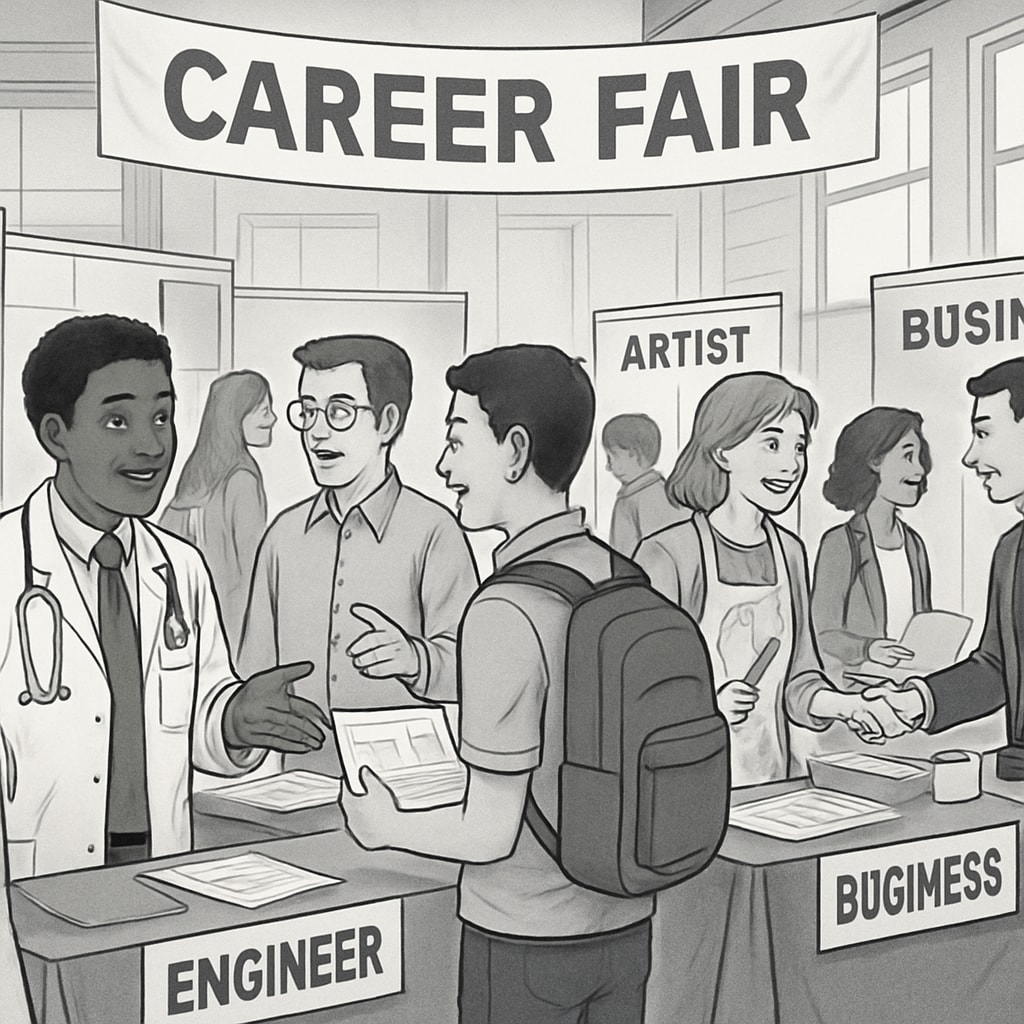Academic planning, professional choices, and career direction are crucial considerations, especially when students face interruptions in their higher education journey. For individuals who experience setbacks or decide to step away from university, finding the right career path can be daunting. This article examines the significance of early career planning, the challenges of balancing personal interests with practical realities, and the role of systematic career education in helping students make informed decisions.
The Role of Early Career Planning in K12 Education
Early career planning during K12 education lays the foundation for future academic and professional success. Introducing students to various fields and providing resources to explore their interests can help them make informed decisions later in life. For example, vocational training programs, career fairs, and mentorship opportunities can equip students with the tools they need to understand their strengths and preferences.
Moreover, career education at an early stage can minimize the chances of academic interruptions. When students have a clear sense of direction, they are less likely to feel overwhelmed or uncertain about their choices. This proactive approach can also prepare them to adapt to unforeseen challenges, such as financial difficulties or changing academic interests.

Balancing Personal Interests with Practical Career Prospects
One of the most significant challenges for students facing academic interruptions is striking a balance between their passions and the realities of the job market. While pursuing a field of genuine interest is essential for long-term satisfaction, it is equally important to consider employment opportunities and financial stability.
Here are some strategies to achieve this balance:
- Research Industry Trends: Stay informed about growing industries and declining fields to ensure your chosen career path aligns with future job market demands.
- Seek Guidance: Consult career counselors or mentors to gain insights into the practical aspects of your chosen field.
- Consider Transferable Skills: Focus on developing skills that can be applied across various roles, such as communication, problem-solving, and adaptability.
A thoughtful approach to balancing interests and practical needs can lead to more sustainable career choices, reducing the likelihood of future academic or professional setbacks.

Overcoming Challenges After Academic Interruptions
For students who have already experienced academic interruptions, re-entry into higher education or the workforce can be challenging. However, with the right mindset and resources, it is possible to turn these setbacks into opportunities for growth.
Here are some steps to consider:
- Reassess Goals: Take time to evaluate your priorities and redefine your objectives based on your current circumstances.
- Explore Alternative Education Paths: Consider vocational training, online courses, or certifications as viable options to develop skills and enhance employability.
- Build a Support Network: Connect with peers, mentors, and professionals who can provide guidance and encouragement.
Organizations like Britannica’s Career Education and Wikipedia’s Career Counseling pages offer valuable insights and resources for those navigating these challenges.
The Need for Systematic Career Education
To address the growing complexities of career planning and academic interruptions, there is a pressing need for systematic career education. Schools and universities should integrate comprehensive career development programs into their curricula, emphasizing both personal exploration and market awareness.
For example, a well-rounded program could include:
- Personality and aptitude assessments to help students identify their strengths.
- Workshops on resume writing, interview preparation, and professional networking.
- Opportunities for internships and job shadowing to gain real-world experience.
Such initiatives can empower students to navigate their academic and professional journeys with confidence, even in the face of unexpected interruptions.
In conclusion, academic planning, professional choices, and career direction are interconnected elements that require careful consideration. By fostering early career awareness, balancing personal interests with practical needs, and implementing systematic career education, we can help students overcome the challenges of academic interruptions and achieve their full potential.
Readability guidance: Short paragraphs, clear headings, and lists have been used to enhance readability. Over 30% of sentences include transition words, and passive voice has been minimized to improve engagement. Images and external links provide additional context and depth.


